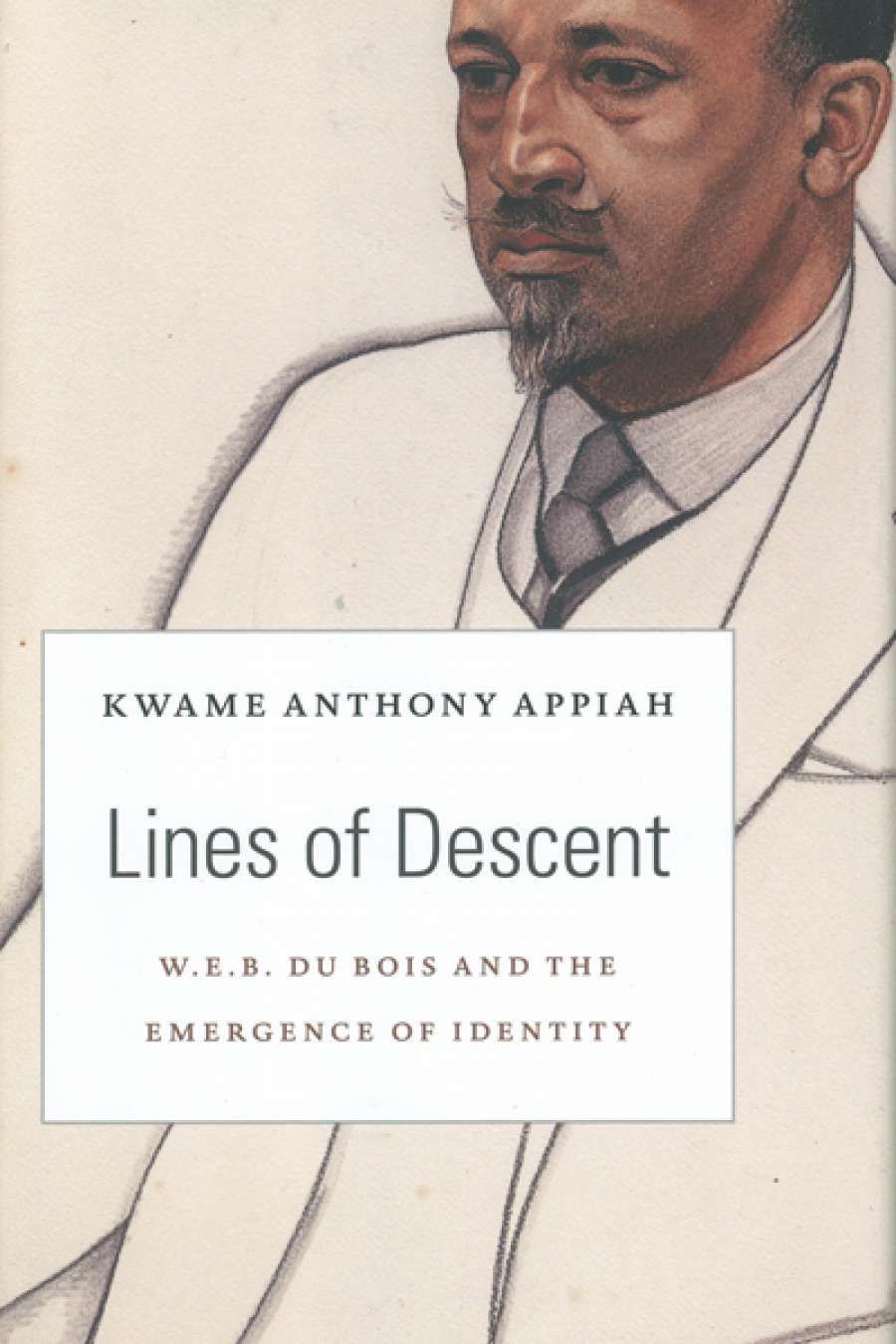
- Free Article: No
- Contents Category: Politics
- Review Article: Yes
- Article Title: The abiding impact of W.E.B. Du Bois
- Online Only: No
- Custom Highlight Text:
William Edward Burghardt Du Bois (1868–1963) forged one of the most remarkable careers of his generation. Starting in the 1890s, often considered the nadir of race relations in the United States, he became the first black man to hold a Harvard bachelor’s degree; emerged as Booker T. Washington’s most eloquent opponent on the issue of segregation; published pioneering work across many genres, including The Souls of Black Folk (1903); and after founding the National Association for the Advancement of Colored People (NAACP) went on to become the dominant voice of the Pan-African movement.
- Book 1 Title: Lines of Descent
- Book 1 Subtitle: W.E.B. Du Bois and the emergence of identity
- Book 1 Biblio: Harvard University Press (Inbooks), $18.95 hb, 235 pp
Foremost among these was race. Following the intramural schisms over scientific racism taking place in Berlin, Du Bois was happy to see the theory convincingly debunked, but a satisfying replacement eluded him. Appiah parses Du Bois’s lifelong efforts to solve a puzzle he first devised for himself in Berlin: how to conceive of a race consciousness that resisted scientific racism, embraced cosmopolitanism, and somehow galvanised the genius of the African diaspora. Once, throwing up his hands, he wrote: ‘A black man is a person who has to ride Jim Crow in Georgia.’
And yet, while Du Bois would live his last years in exile in Ghana (Appiah’s country of birth), he lived long enough to see the Civil Rights Movement coalesce around ideas he had promoted all his life. Du Bois died on the eve of the March on Washington. Next day Roy Wilkins told the crowd that in order to understand what was happening in America they needed to read a book written sixty years earlier: W.E.B. Du Bois’s The Souls of Black Folk.


Comments powered by CComment